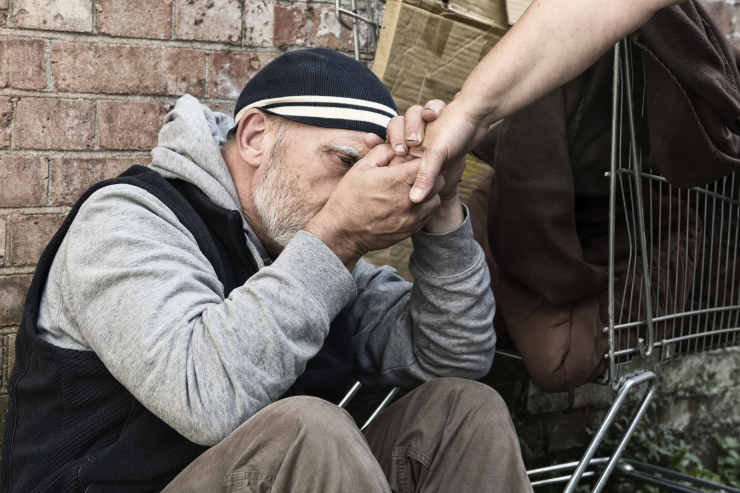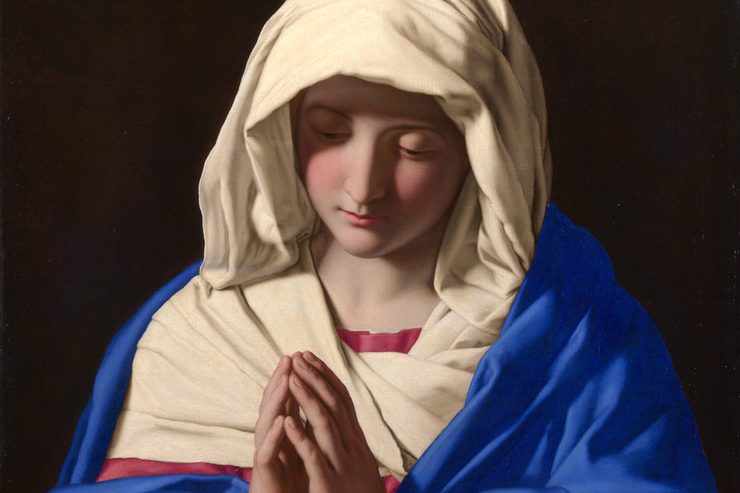
In my last post, I was little strong about the need for a well-formed laity. It’s no secret that we have suffered for years from a lack of solid catechesis in most communities and the effects only increase – exponentially—as the years pass. Much ink has been spilled on what we can do as a Church to remedy the problem. We have to pray for the wisdom and the fortitude to make the changes in our schools, parishes, and homes. It is easy to lament the situation in our world or Church today. But the solution begins in our own minds and hearts. We can seek out good books and good friendships and begin to cultivate the well-formed laity right in our own homes and families.
Working in adult formation for almost ten years, I have seen the gamut of faith education in our pews today. I’ve met many people who have an incredible knowledge of the faith. It may be surprising, but most of these people do not have initials behind their names. Their education doesn’t come from advanced degree programs or even fantastic religious education programs when they were children. Their knowledge comes from their own reading, searching, and praying.
I know I am preaching to the choir. By reading Integrated Catholic Life, you are seeking formation for yourself, and this is key. In a world with knowledge at our fingertips, there is no excuse for neglecting our Catholic education. Catholic websites and following Catholic organizations and individuals on Facebook and Twitter help to infuse our daily intake of information with good religious formation.
Beyond the internet and social media, though, we have to return to the printed word. Wondering where to start? Below are four books that I think are a good place to begin your formation. Obviously, there are many, many more books that I could recommend, but I chose these four as starting points.
- A Map of Life by Frank Sheed—If you want to know what the Church teaches, I could tell you to pick up the Catechism of the Catholic Church, but that isn’t perhaps the easiest book to curl up with on a rainy day. So in addition, I would steer you to Frank Sheed. Sheed had a knack for making theology readable and A Map of Life is an excellent introduction to the basics of the Catholic Faith. If you aren’t used to reading early twentieth century British authors, it might take you a few pages to get used to his style. But whenever I read Sheed, I find myself thinking, “Why didn’t I think to explain this that way?” He is a master catechist. I also recommend his Theology for Beginners and Theology and Sanity.
- Bible Basics for Catholics by John Bergsma—I hope it goes without saying that every Catholic should begin their formation with the reading of Sacred Scripture. But it helps to have a guide. Dr. Bergsma’s book is a great introduction for those who are just beginning Scripture study. In this book, you’ll find his famed stick-figure drawings that have made his class at Franciscan University so enjoyable. While some may find it too introductory, others will find it’s just the overview they need to really appreciate salvation history for what it is and not just a collection of short stories.
- Jesus and the Jewish Roots of the Eucharist by Brant Pitre—This is my go-to gift for priestly ordinations, because I believe no priest should be without this knowledge. Modern Catholics miss so much about our faith and liturgy because of our ignorance of our Jewish roots. This, along with Scott Hahn’s The Lamb’s Supper, will change the way you worship and receive the Eucharist. Too many of us sit at Mass out of routine or obligation, with little to no idea what is happening on the altar or why the Church has been worshipping this way for 2,000 years. Dr. Pitre helped me to see that God had a plan from day one, and the Church was part of that plan.
- In Conversation with God by Father Francis Fernández—This is a bit a cheat on my part, because this is not one book, but a set. I have found these books invaluable to my daily prayer and meditation. Formation in Catholic life cannot happen without formation in our spiritual lives. This series follows the liturgical year and offers a daily meditation, usually using the daily readings at Mass. Father Fernandez’s meditations draw from the spirituality and writings of St. Josemaria Escriva to help us find sanctity in our everyday lives.
As I mentioned before, this is just the tip of the iceberg. The beauty of the Catholic Faith is that the mysteries of God are inexhaustible, and saints (and sinners) have been writing about those mysteries for thousands of years. As a result, there is always something more to learn, no matter if you’re just starting or you have your doctorate in theology. And regardless of where you fall on that spectrum, there’s something for you to learn in the four books above. You may have four different books you’d put on this list. The most important thing is that we continue our education and formation, always seeking out authors and speakers we can trust. It’s up to us to answer that call of John Henry Newman:
“I want a laity, not arrogant, not rash in speech, not disputatious, but men who know their religion, who enter into it, who know just where they stand, who know what they hold, and what they do not, who know their creed so well, that they can give an account of it, who know so much of history that they can defend it. I want an intelligent, well-instructed laity… In all times the laity have been the measure of the Catholic spirit… You ought to be able to bring out what you feel and what you mean, as well as to feel and mean it” (J.H. Newman, The Present Position of Catholics in England).














